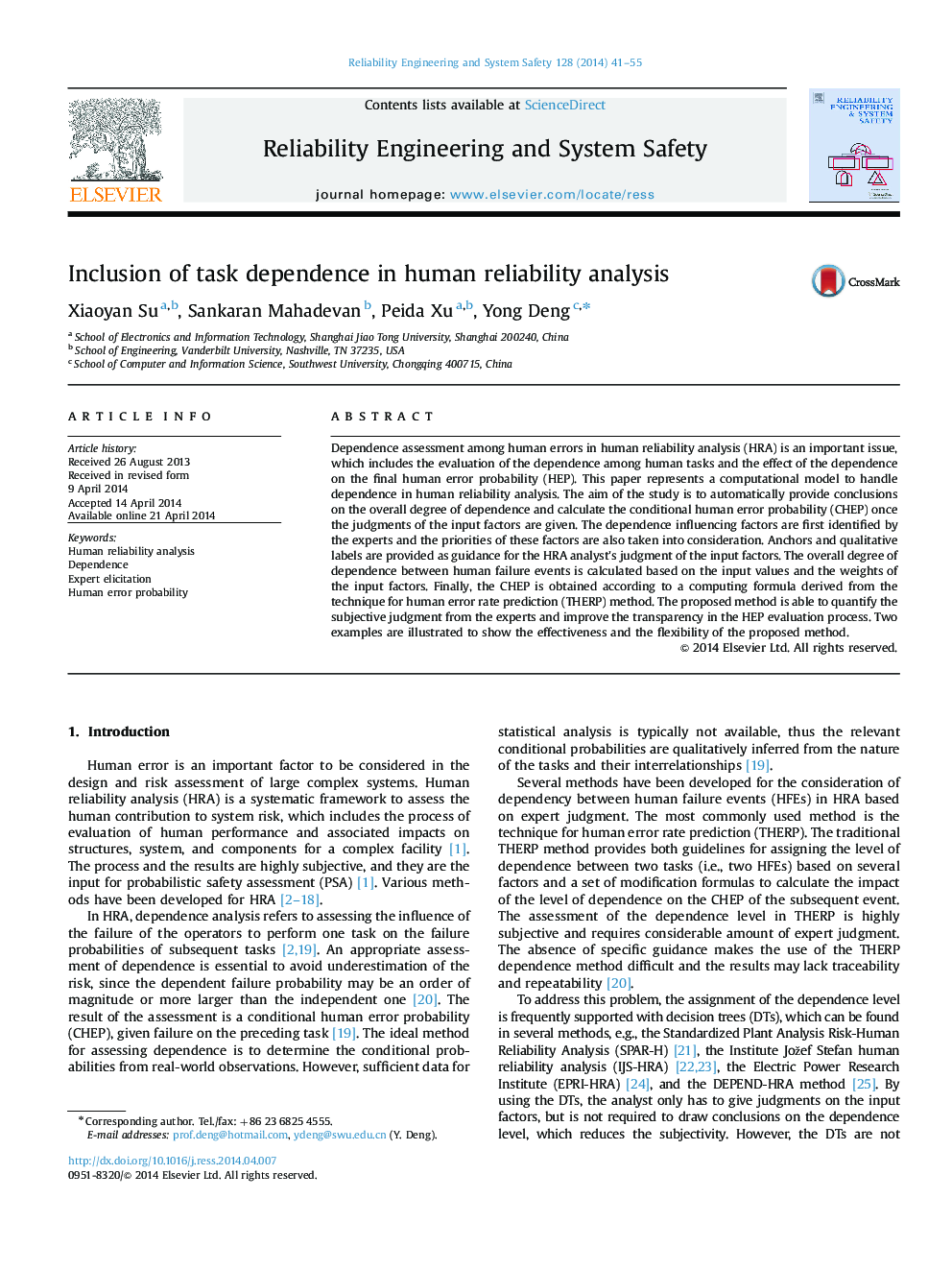| Article ID | Journal | Published Year | Pages | File Type |
|---|---|---|---|---|
| 806305 | Reliability Engineering & System Safety | 2014 | 15 Pages |
•We propose a computational model to handle dependence in human reliability analysis.•The priorities of the dependence influencing factors are taken into consideration.•The overall dependence degree is determined by input judgments and the weights of factors.•The CHEP is obtained according to a computing formula derived from THERP.
Dependence assessment among human errors in human reliability analysis (HRA) is an important issue, which includes the evaluation of the dependence among human tasks and the effect of the dependence on the final human error probability (HEP). This paper represents a computational model to handle dependence in human reliability analysis. The aim of the study is to automatically provide conclusions on the overall degree of dependence and calculate the conditional human error probability (CHEP) once the judgments of the input factors are given. The dependence influencing factors are first identified by the experts and the priorities of these factors are also taken into consideration. Anchors and qualitative labels are provided as guidance for the HRA analyst׳s judgment of the input factors. The overall degree of dependence between human failure events is calculated based on the input values and the weights of the input factors. Finally, the CHEP is obtained according to a computing formula derived from the technique for human error rate prediction (THERP) method. The proposed method is able to quantify the subjective judgment from the experts and improve the transparency in the HEP evaluation process. Two examples are illustrated to show the effectiveness and the flexibility of the proposed method.
